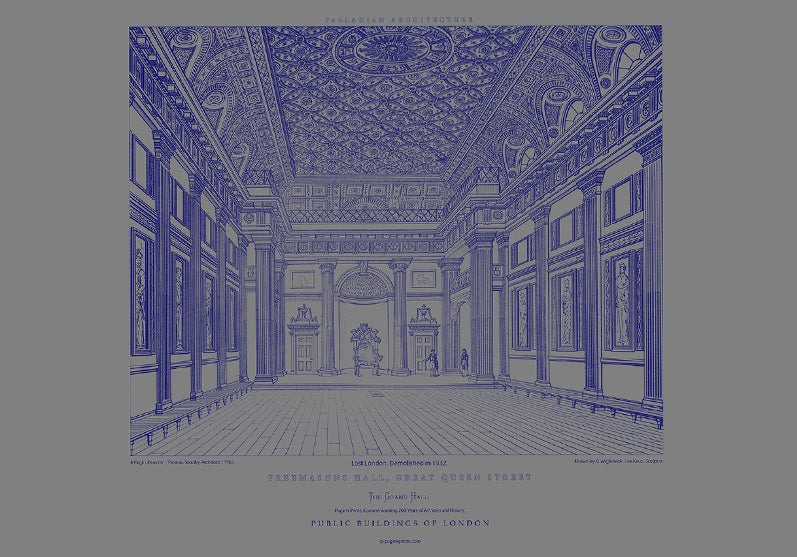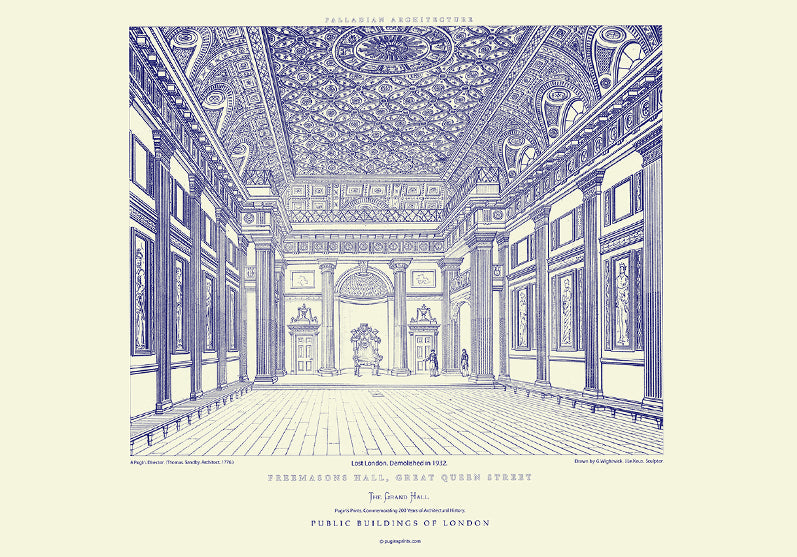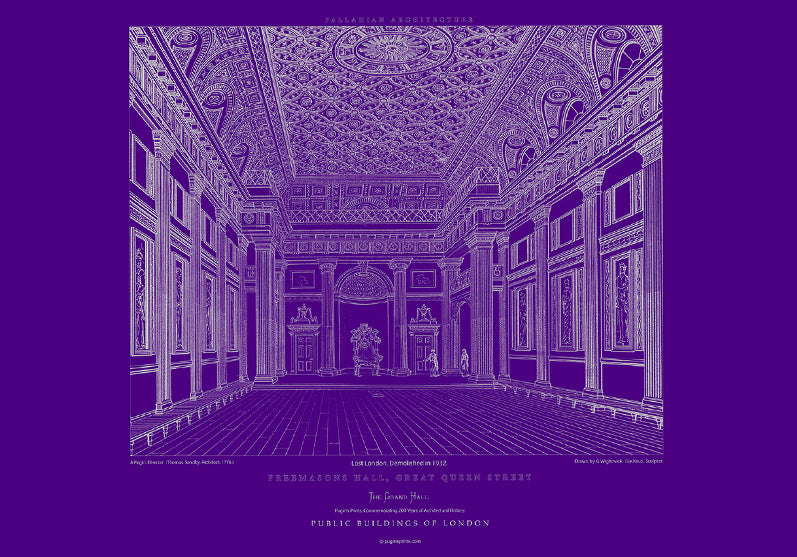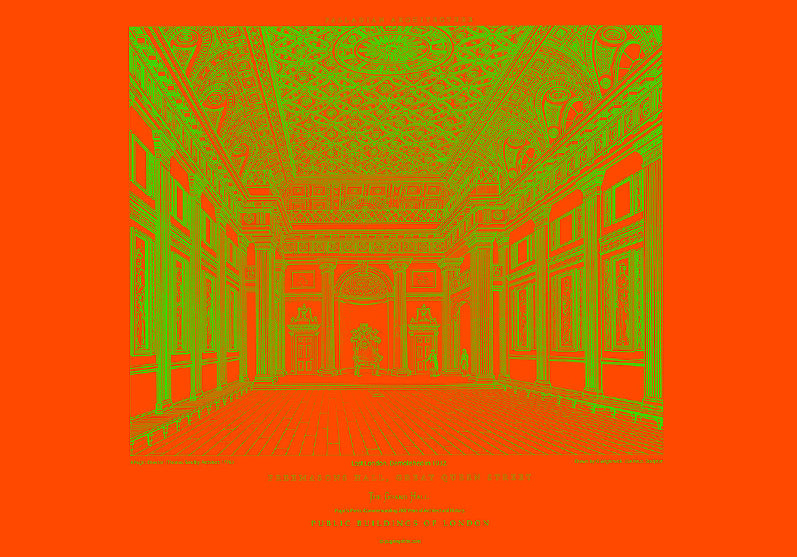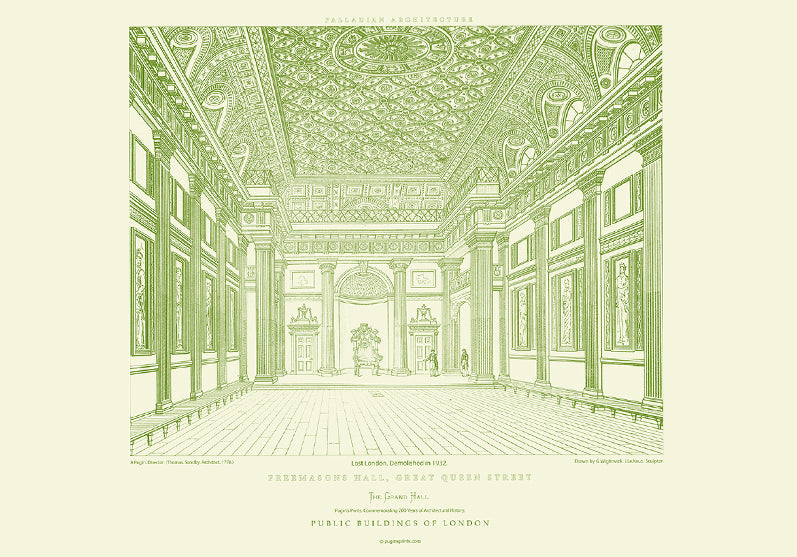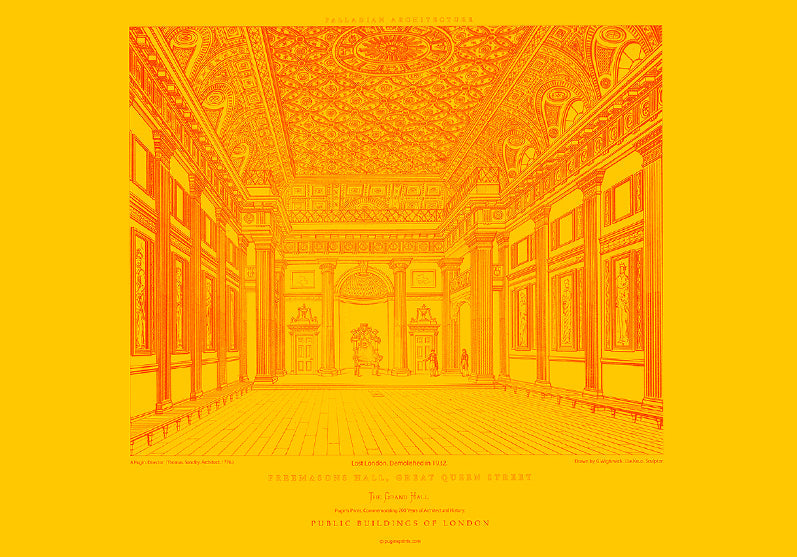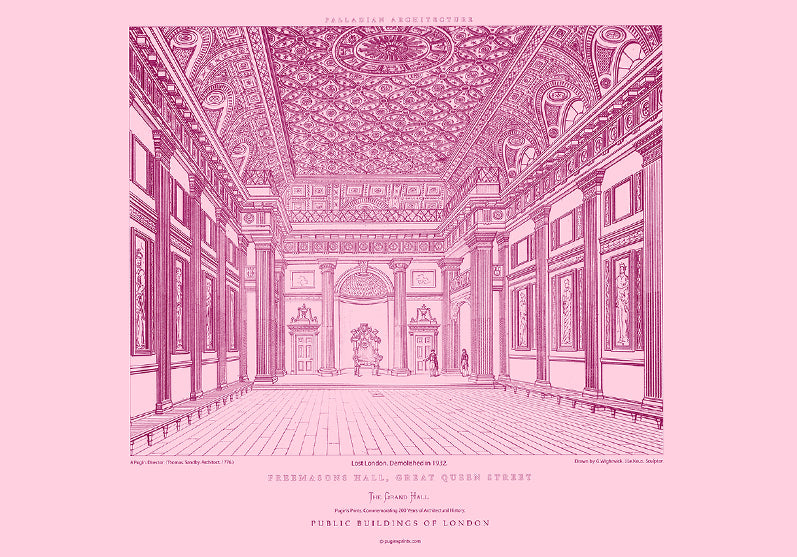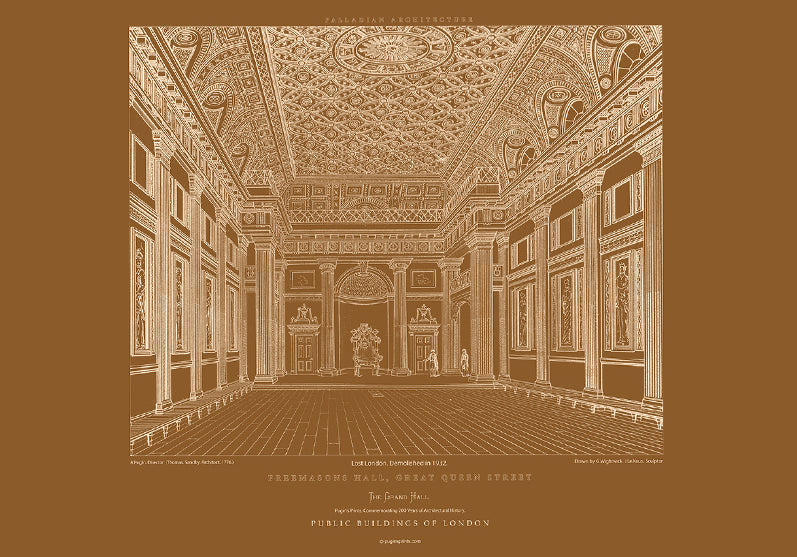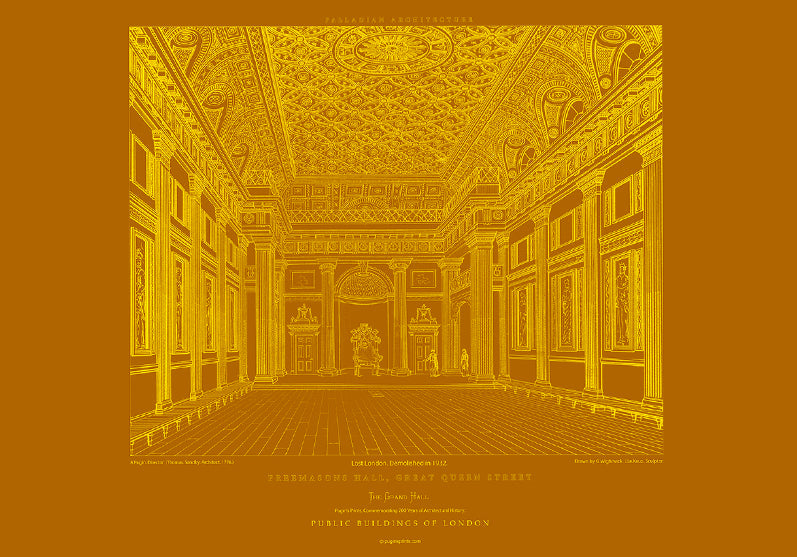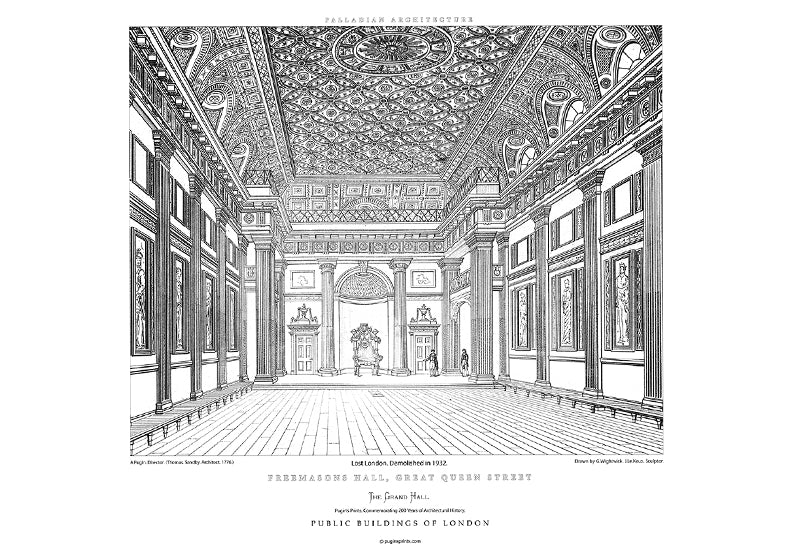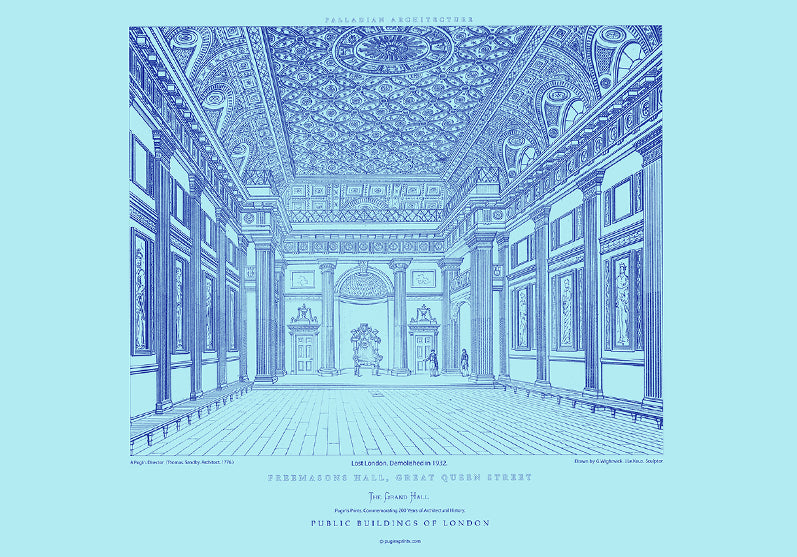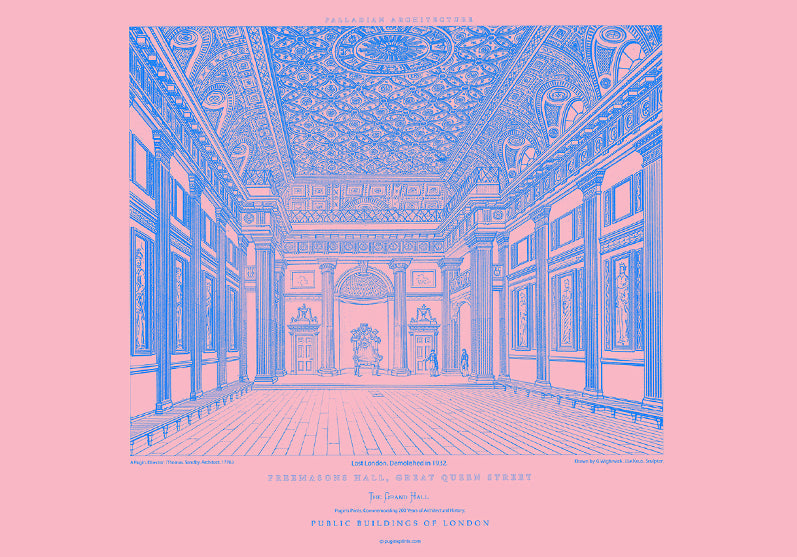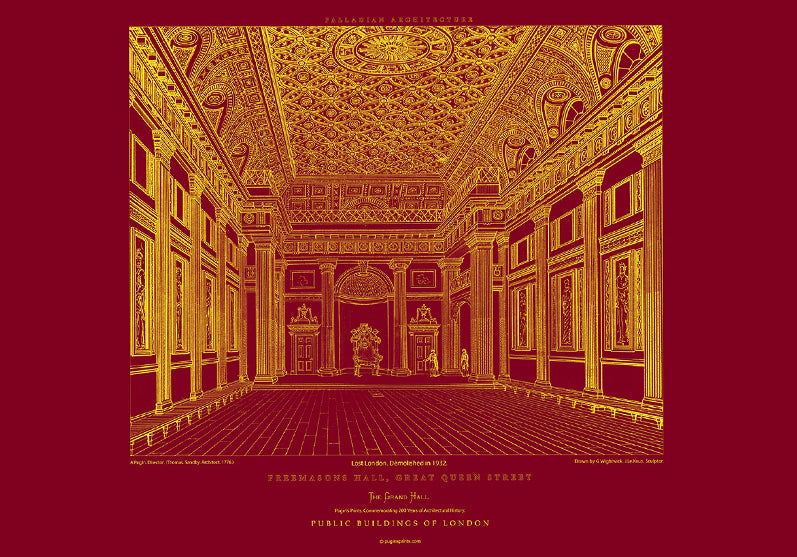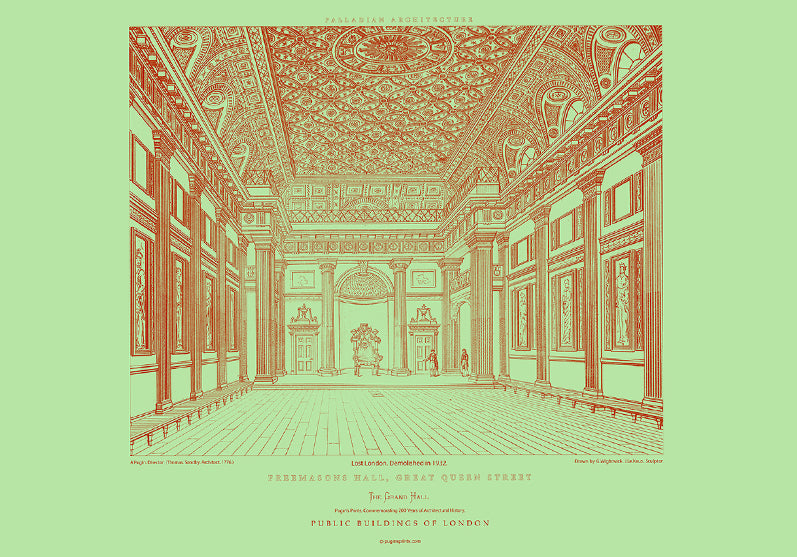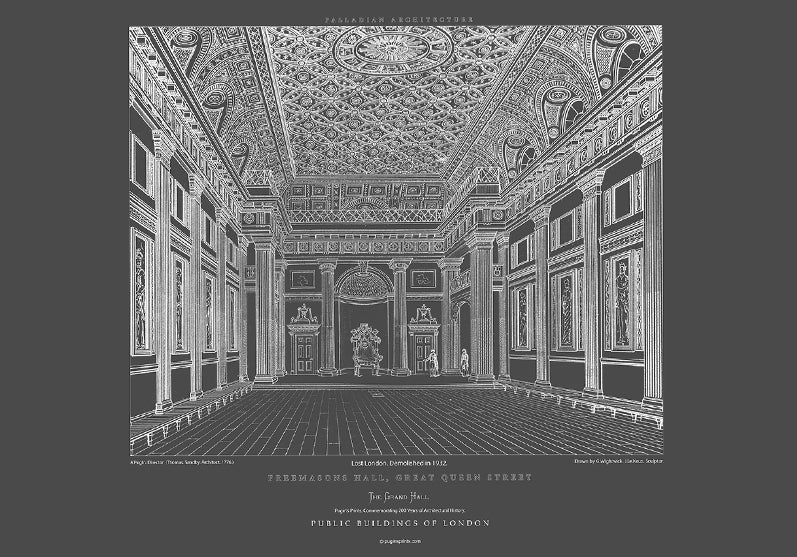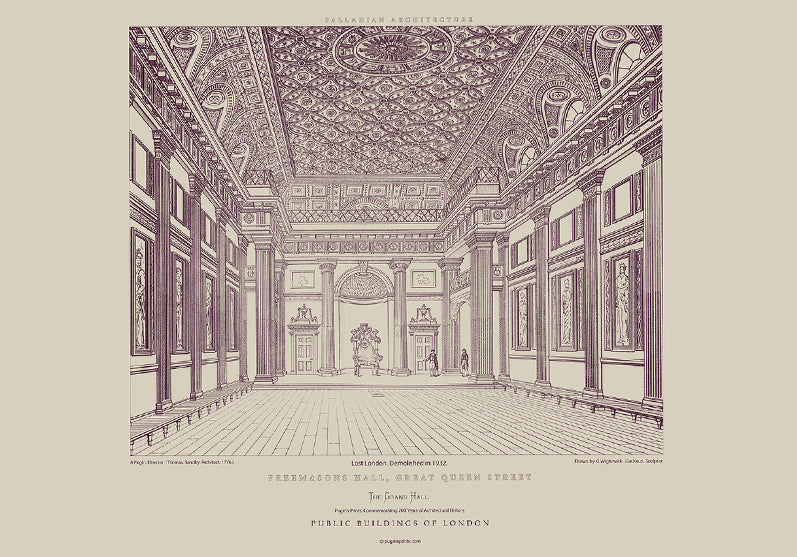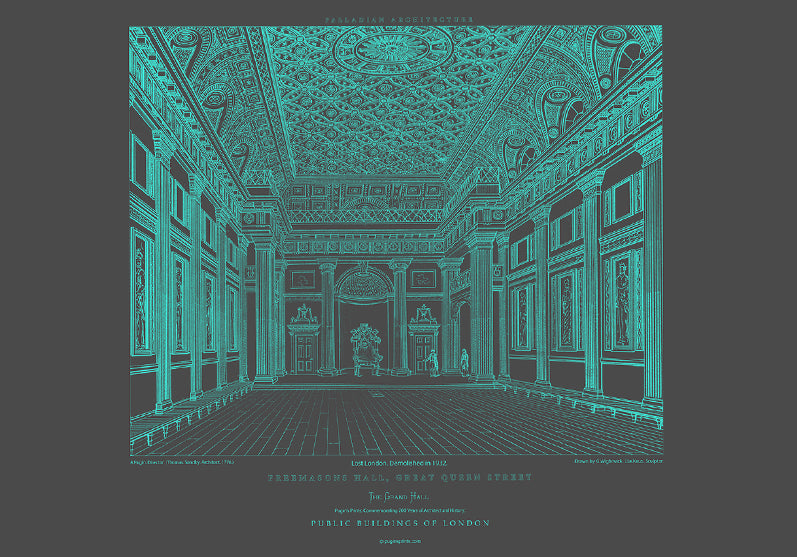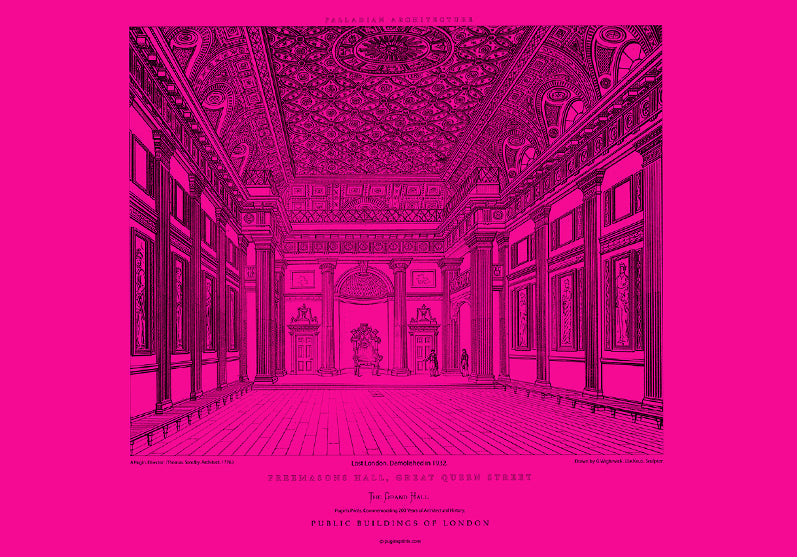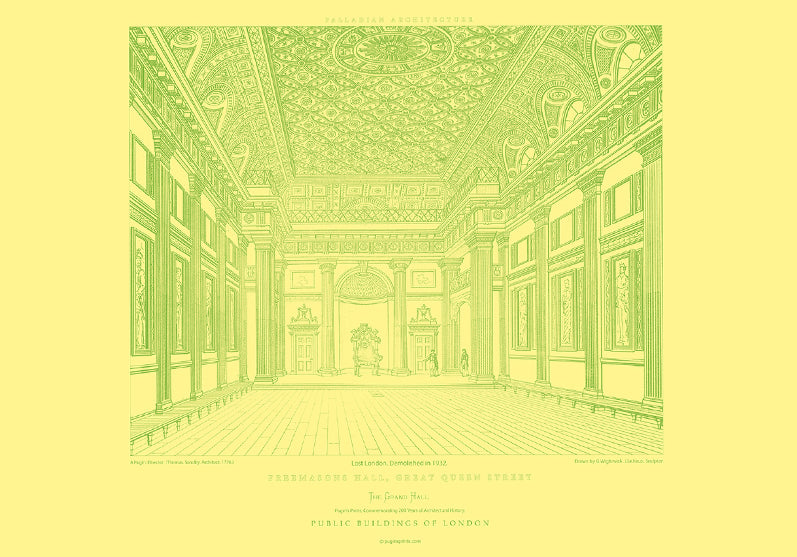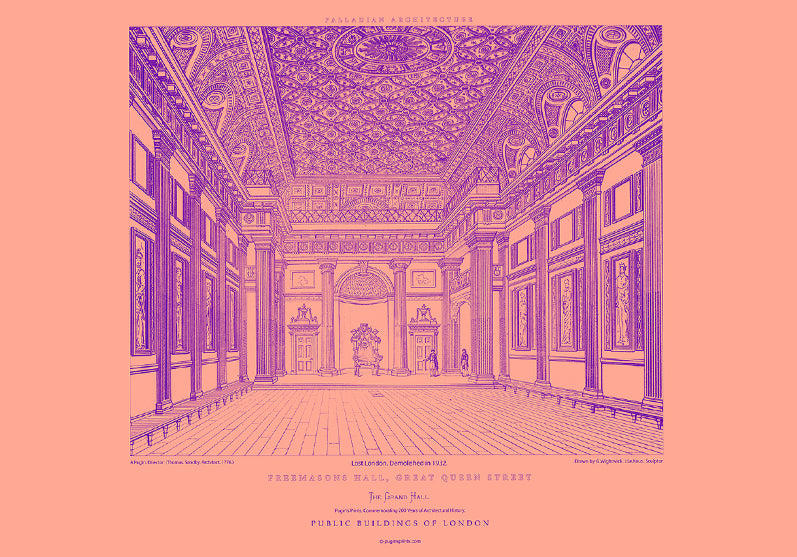Collection: Freemasons Hall
Before the current Art Deco Freemasons' Hall was built, the site housed two earlier Masonic halls:
- First Building (1775–1860): The original hall was designed by Thomas Sandby and dedicated in 1776. It was a grand structure linking two houses, with a Freemasons' Tavern at the front and meeting rooms at the back. In the 1820s, Sir John Soane carried out extensive remodeling, but his additions were later lost.
- Second Building (1862–1925): The hall was rebuilt in 1860 by Frederick Pepys Cockerell, featuring a severely classical style. It was later extended to the east, and part of its façade still exists today, fronting the Connaught Rooms. The building was weakened by a fire in 1883, leading to partial demolition in 1910.
- Transition to Art Deco: After World War I, the Masonic Million Memorial Fund was established to rebuild the hall as a memorial to fallen Freemasons. The winning design by H. V. Ashley and F. Winton Newman introduced the Art Deco style, and the new hall was completed between 1927 and 1933.
1 product
-
Freemasons hall
From £50.00From £50.00/

